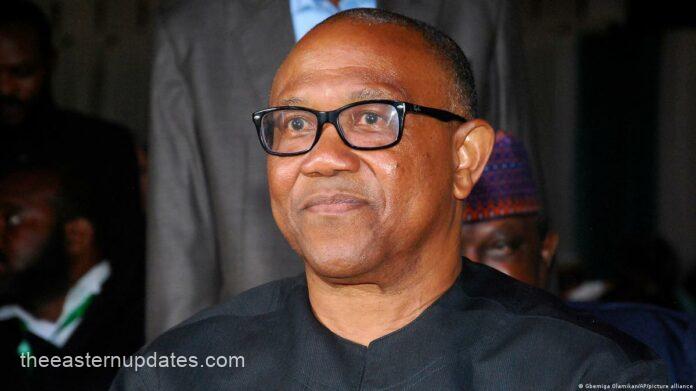|
Listen to article
|
The Independent National Electoral Commission (INEC) as well as the All Progressives Congress (APC) has objected to a request by the presidential candidate of the Labour Party (LP) Mr. Peter Obi and his party to tender exhibits from 17 states of the federation challenging the electoral victory of President Bola Ahmed Tinubu.
The exhibits were mainly Forms EC8B used by the electoral body in collating results at the ward levels in the states during the February 25 presidential election.
INEC, through its lawyer at the Presidential Election Petition Court, (PEPC) Steve Adehi, while opposing admissibility of the documents, informed the court to give rationale for his objections at the address stage of the proceedings.
Obi’s lawyer, Mr Benbella Anachebe SAN, while introducing the documents explained that the exhibits were obtained from the custody of INEC.
Besides, Anachebe said the documents were duly certified by the electoral body before releasing them to his clients.
Apart from INEC which conducted the election in dispute, President Bola Ahmed Tinubu and the All Progressives Congress (APC) who were declared winners of the poll also kicked against the admission of the exhibits.
Read Also: 2023 Polls: Protesting Youths Storm INEC Headquarters In Imo
However, in line with the pre-hearing report and agreements of counsel, reasons for the objections are to be reserved at the address stage of the hearing of the petition.
The states where the exhibits were tendered and admitted are Adamawa, Bayelsa, Benue, Kogi, Nasarawa, Niger, Ondo, Sokoto, Delta, and Ekiti.
Others are Imo, Kaduna, Oyo, Cross River, Edo, Akwa Ibom and Lagos.
That of Ebonyi was put off on the grounds that INEC was yet to make the exhibits available to the two petitioners.
A breakdown of the exhibits showed that the collated Ward results were tendered in 21 Local Government Areas of Adamawa; 8 in Bayelsa; 23 in Benue; 21 in Kogi; 11 in Nasarawa; 25 in Niger; 18 in Ondo; 23 in Sokoto and 25 in Delta.
The rest are 11 Local Government Areas of Ekiti State; 25 in Imo; 21 in Kaduna; 27 in Oyo; 18 in Cross River; 15 in Edo; 31 in Akwa Ibom; and 20 in Lagos.
























